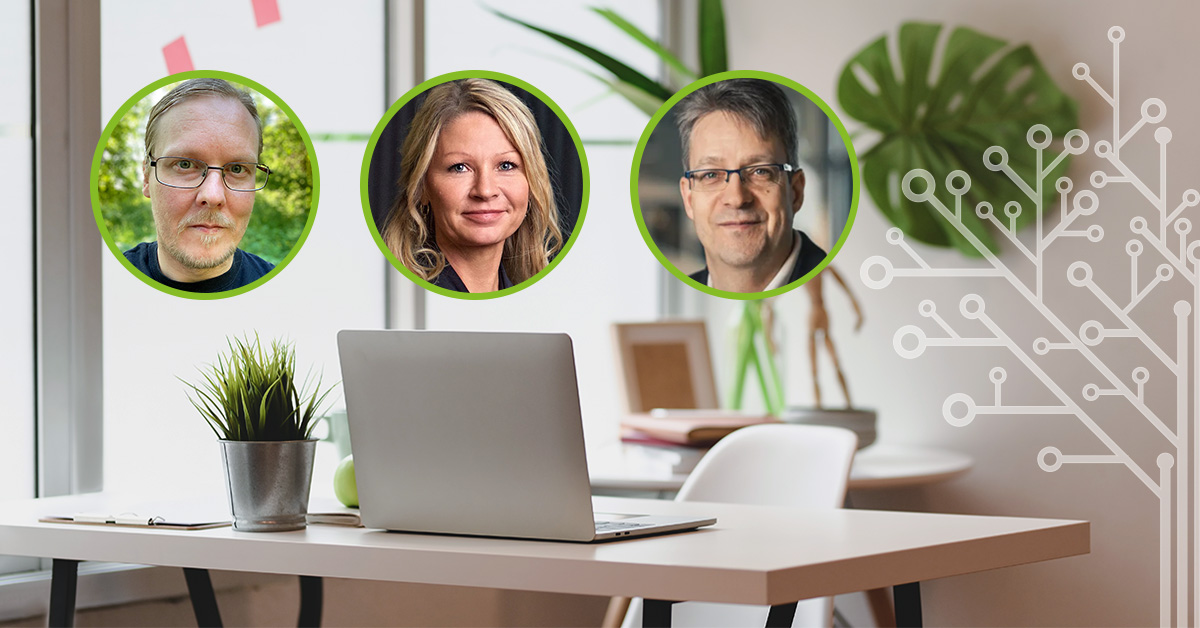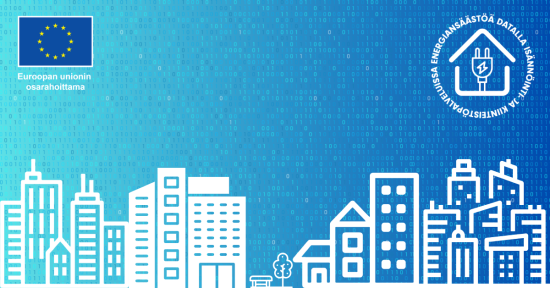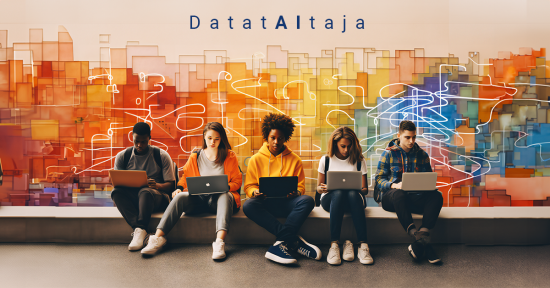The environmental impact of the ICT sector is growing rapidly, and will only accelerate. The sector is becoming one of the major sources of environmentally harmful emissions.
Combined with a growing waste stream, increasing regulatory pressure and sustainability reporting obligations, such as the EU’s Corporate Sustainability Reporting Directive (CSRD), are also compelling the ICT sector to reduce its environmental impact.
Even though the ICT sector already emits about the same volume of greenhouse gases as the aviation sector, the importance of the former in terms of these emissions is not yet widely recognised.
Whereas it is easy to blame air passengers for contributing to climate change, no Netflix viewers are criticised for the same reason.
Jari Porras, professor of software engineering LUT University in Lappeenranta, Tivi influencer of the year in 2023
“Other sectors can also think of ICT not only as a tool but as a means to achieve their environmental goals. ICT goes further than merely facilitating the green transition – it makes it possible.”
And this is an opportunity worth seizing. In addition to the positive climate impact, the development of operations in line with Green ICT is often also directly reflected in a company’s finances, as greener operations result in savings in energy consumption, among other things.
The green transition is already happening
The challenges of the green transition do not just lie ahead. They are already part of everyday life for many companies.
The CSRD directive obligates larger companies to report on their sustainability-related responsibilities for the financial year 2024. Smaller companies will follow in 2025, and finally, in 2026, almost all companies will be obligated to publish a sustainability report.
Corporate sustainability-related issues can already affect smaller companies if they are part of the supply and value chain of a larger company that is subject to CSRD requirements. More and more consumers are also aware of the need for sustainable practices, and are increasingly demanding them. With Green ICT in place, environmental friendliness becomes a competitive advantage.
The green transition is not just about reporting, however. It is above all about action and changes in activities that are reported. With sufficient know-how, it is easier for companies to operate more sustainably. This is the expertise that the Green ICT Visiiri project provides to participating companies.
The ICT sector’s carbon handprint is also visible in other sectors
The ICT sector’s impact on environmental issues is visible in two ways: both through its environmental handprint and its environmental footprint, the sector plays a significant role in environmental issues.
The environmental footprint is the impact a company’s solutions have on the emissions and environmental impact in its sector. The environmental footprint of ICT is affected by factors such as electricity consumption. Now, as artificial intelligence comes to the fore and other forms of digitalisation also continues to grow, this will only increase. By developing their activities in line with Green ICT, companies can save on energy consumption. This also contributes to profitability.
A handprint is the impact of a company’s decisions on the energy savings, environmental impacts and sustainability of other parties. The handprint of the ICT sector can affect the carbon footprint of many other sectors, as well as affecting the overall ability to meet the EU’s green transition targets and obligations.
An easier path to a green transition
How can ICT companies best respond to the demands of the green transition? To answer this question, a national Green ICT Visiiri project has been set up. This is an ICT green transition project that develops Finnish expertise and promotes the adoption of Green ICT nationwide.
The Green ICT Visiiri project offers a wide range of benefits for participants:
- National ecosystem meetings
Online meetings are a quick and easy way to keep abreast of developments and to network. The meetings are open to everyone. The first national ecosystem online meeting took place on 17 June 2024 at 12:30 pm. Recording and materials of the meeting are available in Finnish. - Action at regional level
The Visiiri project will also be extended throughout the country with the launch of regional ecosystems. These are excellent networking opportunities for companies and others in the region. The events provide an excellent environment for common learning and development. - Corporate co-development
Companies can participate in developing the project’s indicators and draw on the Finnish Information Society Development Centre (TIEKE) and the participating universities in their development efforts.
Co-development also includes customised training for employees. Small amounts of funding (de minimis funding) can be sought from the EU to facilitate this. Through the aid, the value of the training is approximately €1,800. If a company is not eligible for de minimis funding, it can also be purchased at full cost. De minimis funding is an instrument of EU aid that is limited so at to avoid distorting competition.
The Green ICT Visiiri project provides an easy way for companies to learn about the topic. The opportunity to participate in Visiiri is well worth taking.
Tuomas Mäkilä, Assistant Professor of Digital Transformation at the University of Turku
Mäkilä says the project will result in more productised services and tools that will make it easier to measure and assess the environmental performance of systems.
As measurement and evaluation become easier, so does decision-making, making it simpler to improve energy efficiency.
Green ICT: an investment that also offers a competitive edge
The Green ICT Visiiri project offers companies many benefits related to the United Nations’ Sustainable Development Goals (SDGs).
Once companies are involved in Visiiri, environmental friendliness gradually becomes a natural part of their processes. In this way, the green transition ultimately provides a competitive advantage for them.
Porras emphasises that green ICT should be seen as an investment in skills, new ways of working and the desire to be more efficient while respecting nature.
In the longer term, when companies operate more energy-efficiently, the effect will also become evident in the cost structure and thus also in operating profits.
Jari Porras
Porras lists three first steps that companies can take towards Green ICT:
- First, set understandable top-level goals.
- Communicate these to the whole organisation so that staff at all levels understand what the goals mean in their own work and why they have been adopted.
- Make Green ICT part of the company’s processes.
The benefits of networking with businesses and universities
With other Green ICT Visiiri participants, companies can share their experiences and lessons learned, improving at the same time.
“Together, we can make Finnish ICT companies more environmentally friendly and make this a model country in accordance with the ICT strategy of the Ministry of Transport and Communications,” Porras says.
As Mäkilä sees it, the companies that are already implementing Green ICT will benefit from networking with other like-minded companies. “These companies benefit from the expertise of the universities and other experts involved in the project, as well as from the latest research.”
Tools and knowledge for business development
The Visiiri project is an excellent channel for raising awareness of Green ICT matters. The project’s work packages are ideal for identifying and monitoring the climate and environmental impacts of the ICT sector from various perspectives, including measurement, consulting, software, telecommunications and server rooms.
Led by researchers at the University of Turku, the project addresses issues concerning the measurement of environmental impact. The University of Oulu’s Visiiri project work is linked to the 6G Flagship programme, which explores future sustainable information networks.
“In addition to environmental sustainability, the design, preparation and use of information networks also aim to increase social and economic sustainability,” says Sanna Tuomela, project manager of the Green ICT Visiiri project at the University of Oulu.
The University of Oulu’s contribution to the project will focus on the environmental sustainability of mobile networks, such as the energy efficiency of networks.
“Companies can participate in research in the Visiiri project, for instance by contributing case study data on the environmental resilience and energy efficiency of mobile networks and by joining the national Green ICT network.
Through the network, companies can participate in discussions and obtain tools and information for making their activities more environmentally sustainable.”
The University of Eastern Finland’s contribution to Visiiri focuses on green ICT and environmental friendliness in server room environments and server hardware.
“Environmental sustainability goals are reflected in the entire value chain of IT service production, such as the selection of server room suppliers, service design, sustainable service production through digitalisation, and the management and recycling of workstations and mobile devices in an efficient way that meets data security and data protection requirements,” says Marko Jäntti, adjunct professor of digital service management at the University of Eastern Finland.
Green ICT Visiiri’s added value for business
- The Green ICT Visiiri project helps companies to think, adapt and develop their activities to be more environmentally sustainable and thus better meet future demands.
- The project can help generate new turnover for companies and add value for their existing customers. More and more consumers are becoming environmentally aware, and businesses must follow suit. Proven eco-friendly credentials encourage customers to buy.
- Companies can engage in research, development and innovation with universities and other experts and in this way develop their own activities.
- They can access the latest research information and draw on it to advance their Green ICT thinking.
- The project meetings also provide excellent networking opportunities. Companies can showcase their Green ICT activities at meetings for increased visibility.
- The project involves the development of a comprehensive guidance and self-learning package for generating and updating knowledge. This allows anyone from any company to develop their knowledge and skills for free.
- The project also provides training for company staff. This training can also be subsidised, in which case it is free of charge for the company.
- Another purpose of the project is to develop and create free tools and information for measuring and improving energy efficiency. Among other benefits, these will allow companies to incorporate energy efficiency and environmental friendliness in their ICT equipment procurement.
- The project helps companies to understand regulations, including how to comply with the CSRD sustainability reporting obligations and what information to report.
- To make reporting as easy and automatic as possible, the project will develop reporting templates with reporting companies. By 2026, almost every company will be required to make reporting under the CSRD.
- Through contacts with other companies and universities, companies will also have access to opportunities for theses and other development projects.
- The project can result in significant direct financial savings for companies. For instance, choosing a more energy-efficient implementation platform can bring very large savings in energy consumption.
- All the project tools and participation in project activities are free of charge.
- Get involved and join the Green ICT Visiiri project! Contact project manager Antti Sipilä.
Green ICT Visiiri offers tools for eco-friendliness and a wide range of methods
- The Green ICT Visiiri project will provide an overview of the impact of the ICT sector in Finland on the climate and environment more broadly.
- The project promotes the green transition of the Finnish ICT sector by connecting the various parties in the sector to a national ecosystem. The ecosystem enables the sharing of best practices and brings together Finnish industry and academia.
- The project involves the development of methods to measure the environmental impact of the ICT sector and create environmental awareness training materials for companies. As part of previously implemented Green ICT projects, several useful tools have already been developed for organisations to use (page in Finnish):
- The Green ICT development plan is an easy, quick and free means of self-assessment that allows companies to produce a development plan for the green transition. It is available in Finnish.
- As part of the Green ICT MitViDi project, a tool was developed to assess the energy consumption and climate impact of software. It facilitates purchasing decisions and the preparation of tenders when making ICT purchases. It is available in Finnish.
- The project is coordinated by TIEKE. The project partners are the University of Eastern Finland, LUT University, the University of Oulu, TIVIA and the University of Turku.
- The project also involves the following Finnish companies: Accountor Finago, Alvidiotech, CTRL Reality, Exove, Hiottu, MorrowX, Netum, NorthCode, Solita, Sorware, and Trail Openers.
- The project is co-financed by the European Regional Development Fund (ERDF). The funding has been granted through the North Ostrobothnia Centre for Economic Development, Transport and the Environment.
Collaborate with TIEKE?
Want to help organizations in themes such as digital competence, data economy, real-time economy, or sustainability? Partner with us!
TIEKE Finnish Information Society Development Centre is a non-profit organisation founded in 1981 aiming to develop, improve and support a thriving information society and all its digital endeavours.
We help organizations in various ways:
- Projects and initiatives
- Networking and ecosystem work
- Surveys and studies
- Expert services and advice
- Webinars, online trainings and coaching programmes
- Materials and guides
We have a track record working in various project roles: coordination, partner, expert, comms and more.
We run around 15 projects per year and are familiar with instruments such as CERV, Erasmus, ERDF and ESF.
We work with wide array of target groups such as SMEs, large companies, educational organizations, public sector and associations.
Don’t hesitate to get in touch to discuss collaboration opportunities with us!










